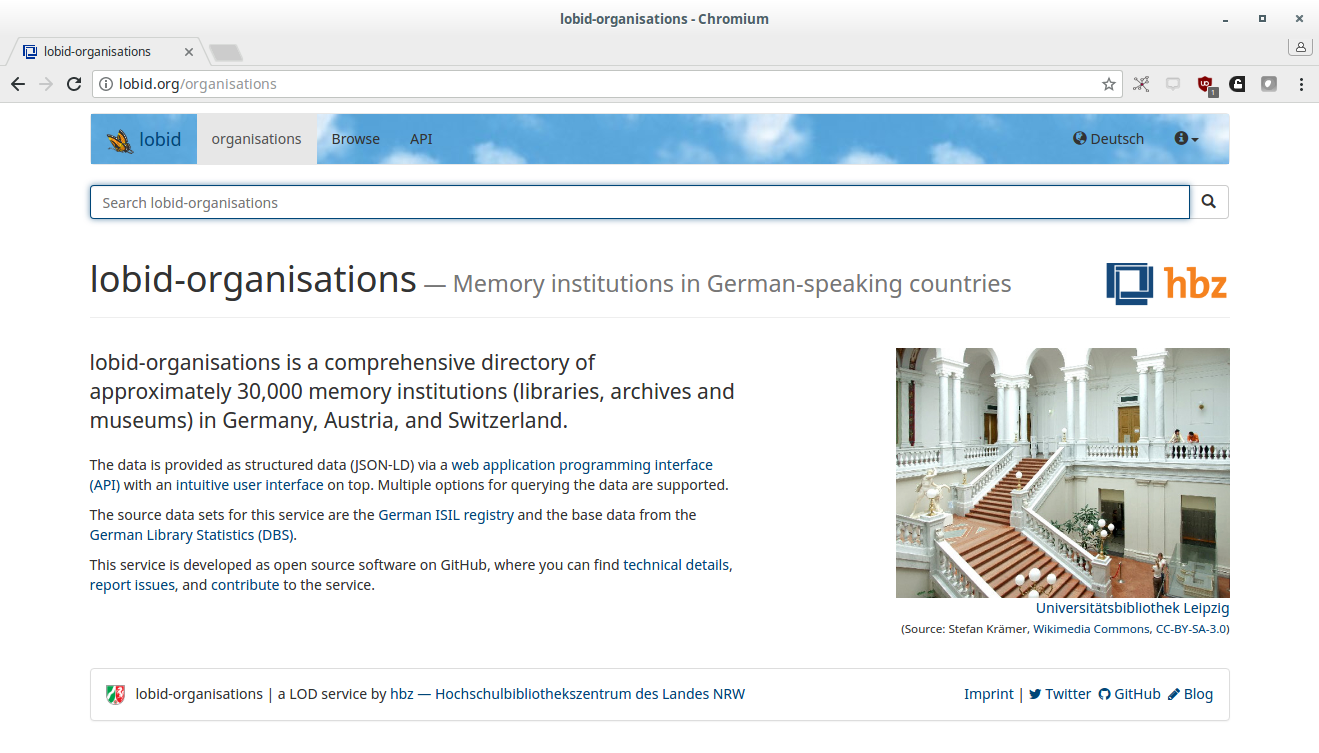lobid 2.0
Building a LOD-based web API
Adrian Pohl / @acka47
Linked
Open Data, Hochschulbibliothekszentrum NRW (hbz)

Show & Tell, World Wide Web, 2017-07-27
This presentation:
http://slides.lobid.org/lobid-show-and-tell/

Agenda
- lobid
- lobid-resources / Demo
- API Documentation
- Lessons Learned
- Q & A
The hbz
North Rhine-Westphalian Library Service Centre, est. 1973
Software services for libraries in NRW and beyond
E.g. union catalog, discovery portal DigiBib, ILL, Digitization & Digital Preservation, consortial acquisition
See also hbz flyer in English (PDF)
lobid
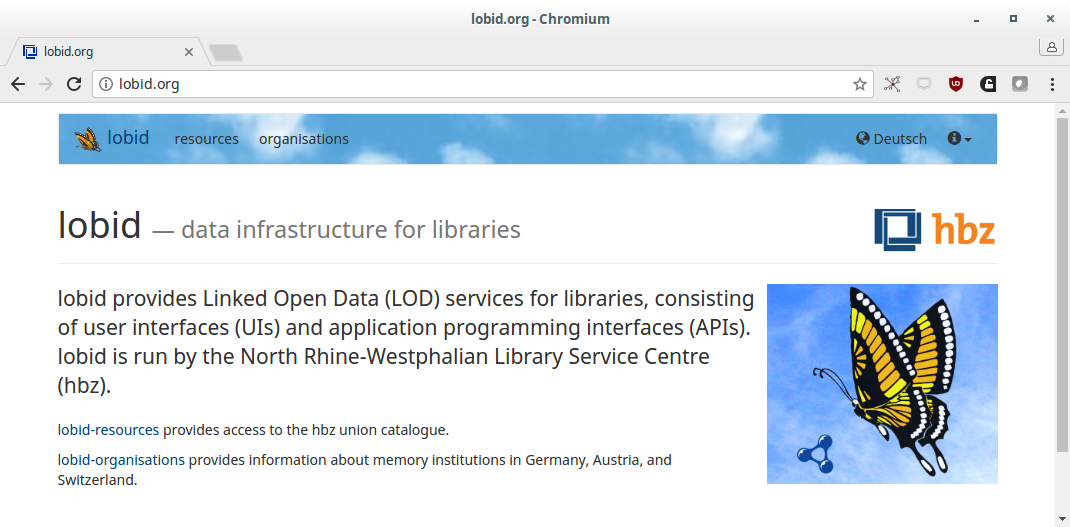
What is lobid?
LOD-based data infrastructure
Research & Development since 2010
Search UIs for end users &
web APIs (read only) for web developers
Version 2.0 recently went into production
Based on data from different sources
Data sources
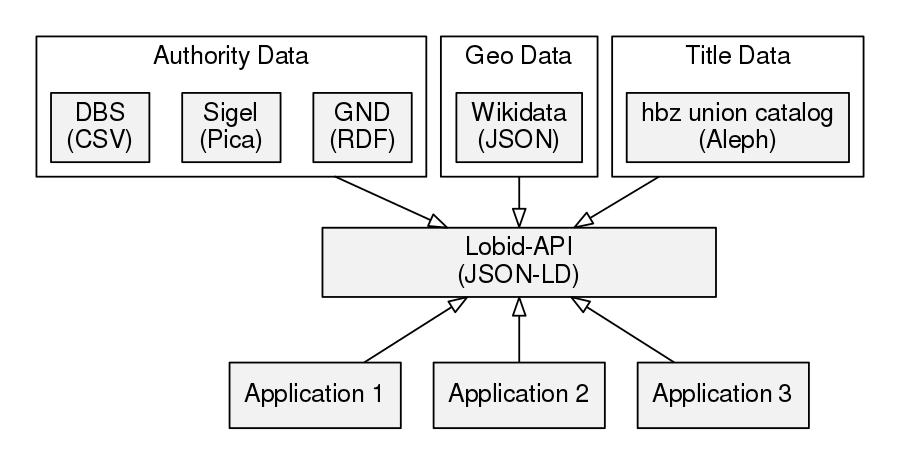
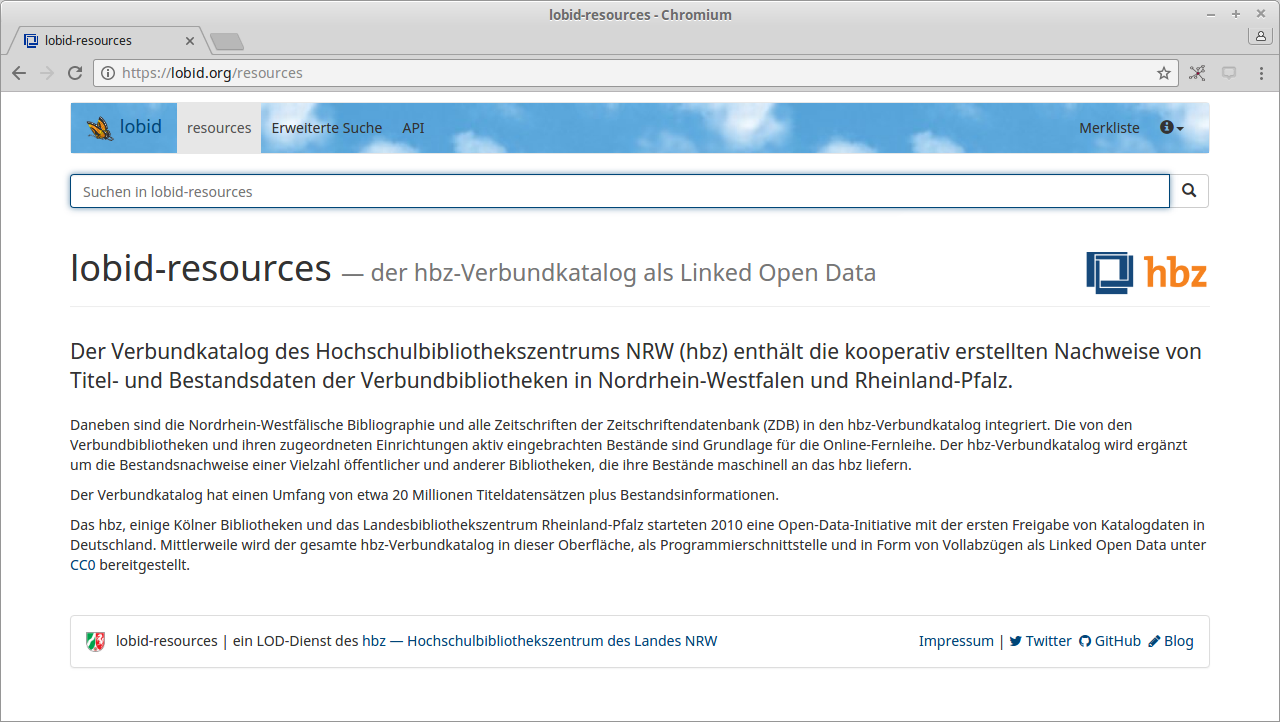
lobid-resources
The data: hbz union catalogue
Cataloging libraries: 56 academic & special libraries,
1000 institute/departmental libraries
20 million records and 45 million holdings
Cataloging environment: Aleph
Source format: Aleph MAB2 XML
ETL
Daily export of Aleph MAB2 XML based on Aleph publishing mechanism
Transformation to N-Triples with Metafacture
Conversion to JSON-LD with addition of some concept labels with Etikett
Result is indexed into Elasticsearch
Let's take a look
https://lobid.org/resources
Example resource: Aleph export, JSON-LD
API Documentation
See also "Documenting the lobid API" in the lobid blog
What to document?
Data set
API, including response format
RDF properties and classes
Provenance
Data set description
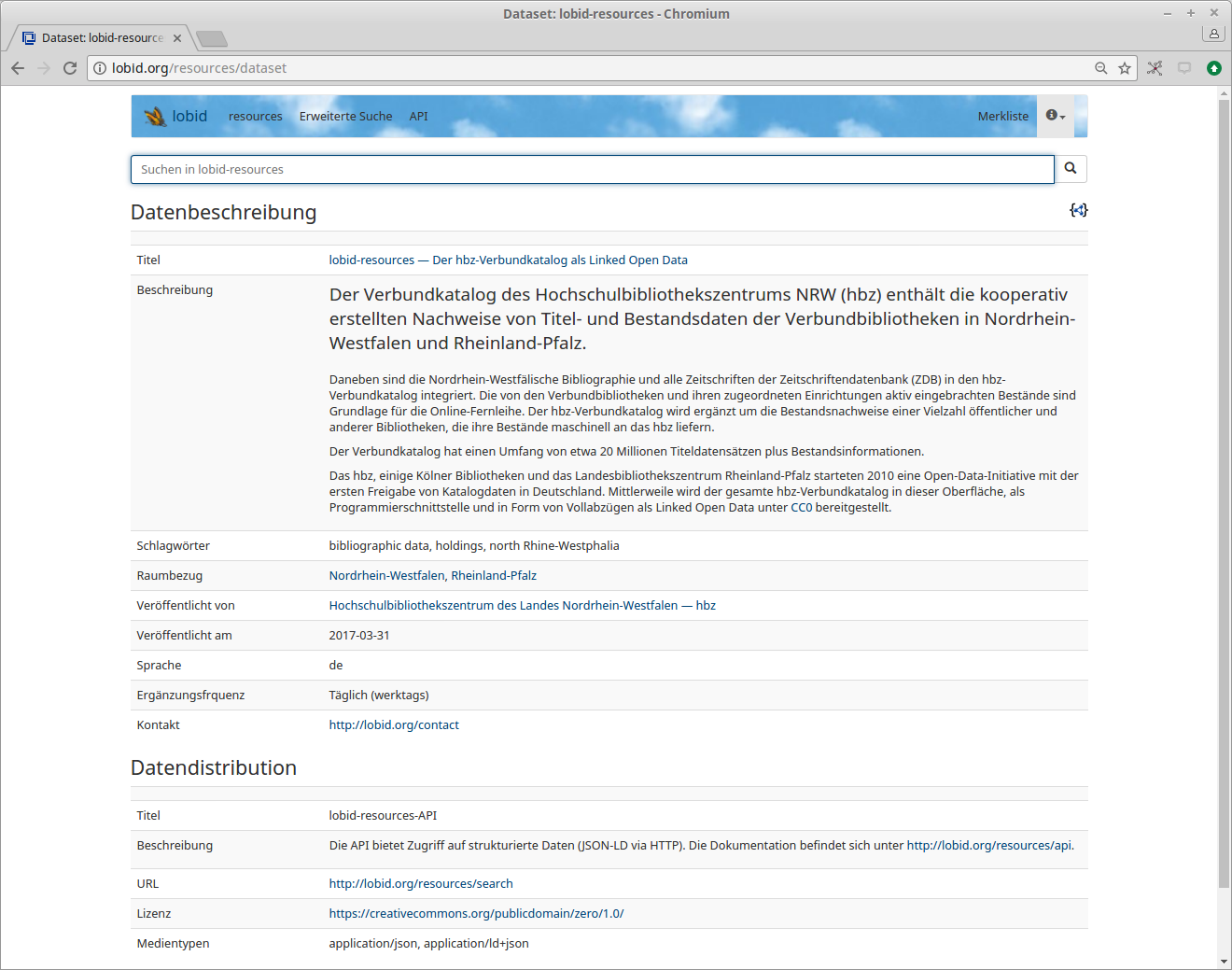
See also Data on the Web Best Practices
And the rest?
https://lobid.org/resources/api
Documenting API responses
Dull, without context:
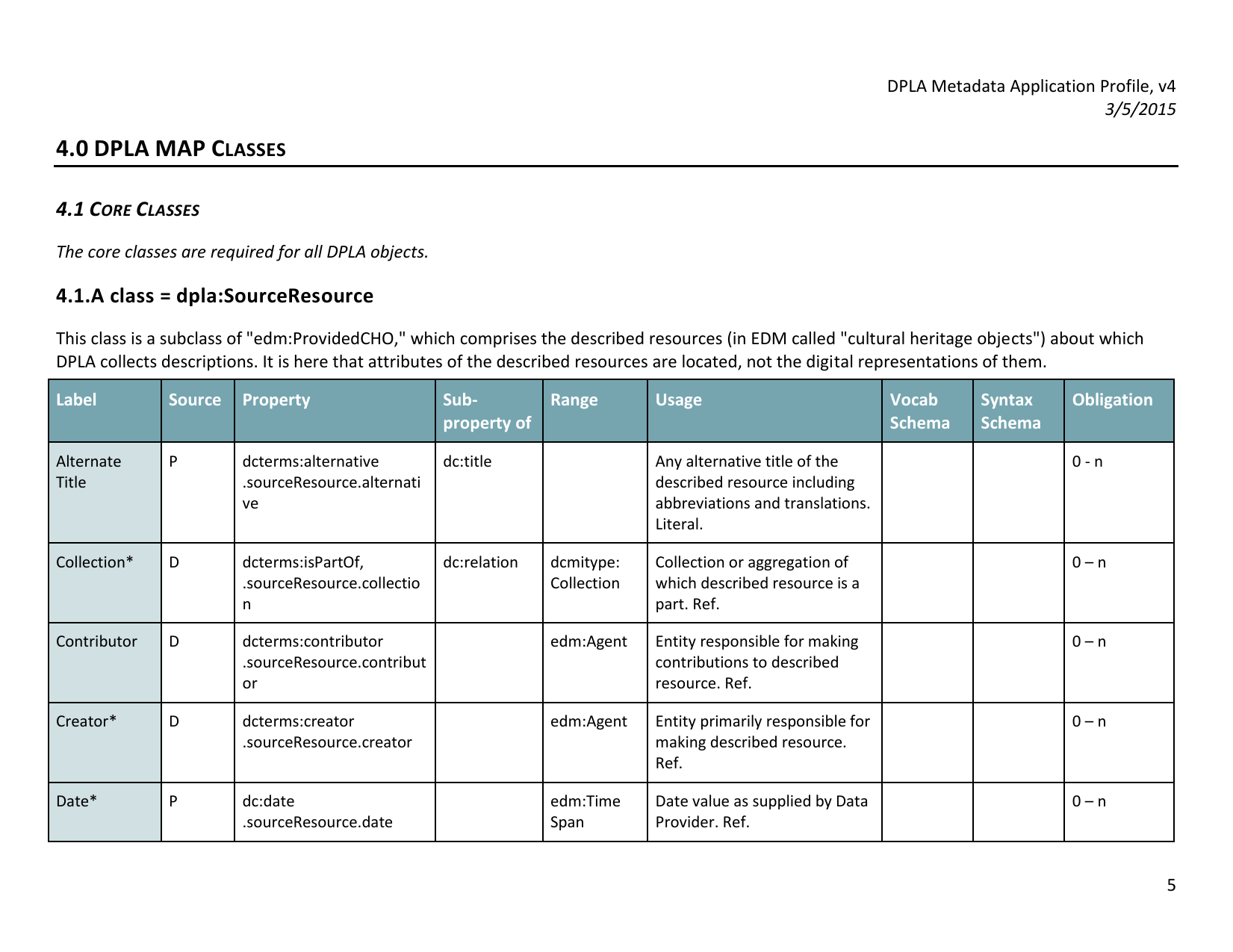
I need examples!
But examples are often only an annex to the documentation if given at all
"Descriptive approach" is predominant
Putting the example into the center of documentation!
Why not attach structured data (name, description, URI etc.) directly to examples?
Today, this is no problem with annotation tools like hypothes.is
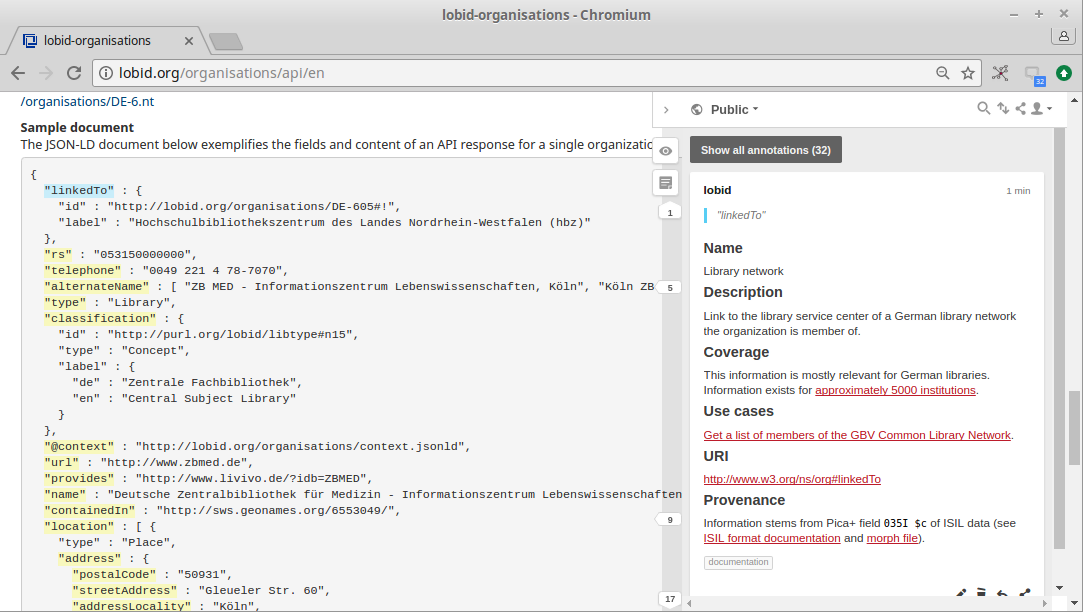
Attached information
Name
Description
Coverage
Use cases
Provenance
URI
Let's try this out
http://lobid.org/organisations/api/en#jsonld
Advantages
Contextualization of the documentation
Example is up-to-date, because live data is annotated
Feedback from API users via hypothes.is possible
Intuitive usage
Enables quicker and better understanding
Lessons Learned
...over the last couple years
APIs
SPARQL is nice for complex queries
For lots of use cases a performant API is more reliable and convenient
Also, you can implement LDF on top of that API
Data Modeling
Reuse of existing vocabularies might be overrated
Rather add one level of indirection than use subproperties (see also this post)
Creating nice JSON-LD isn't straightforward yet (especially with more complex data & bnodes) & there are different ways of doing it
Development
When something's missing, contribute to existing libraries instead of rolling your own
Sometimes it's better to build a new house instead of fixing an old one
Where can Alma improve over Aleph?
At best publish well-formed, consistent and correct JSON-LD
More realistically: provide reliable and performant interfaces for getting data and updates (e.g. dumps + ResourceSync)
Write API (Bibframe- or MARC-based)
